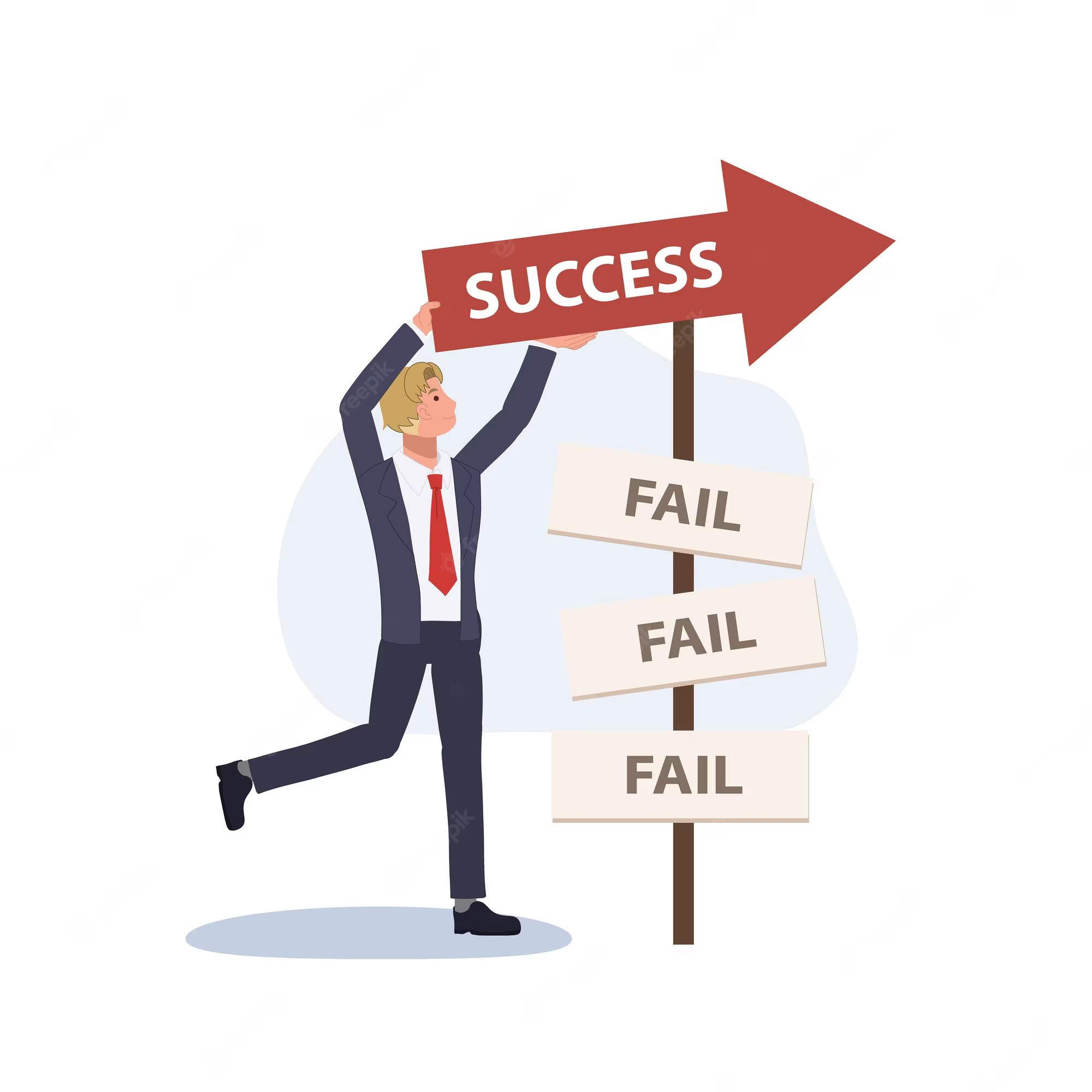Failure refers to the lack of success in achieving a desired goal, outcome, or expectation. It’s a natural and common part of life that everyone experiences at some point. Failure can occur in various aspects of life, including personal relationships, academics, careers, sports, and creative pursuits. People often have a fear of Breakdown due to the negative emotions associated with it, such as disappointment, frustration, and self-doubt.
Can failure make you depressed?
Failure can certainly lead to depression. When we fail, it can shake our confidence and self-esteem. We may start to question our abilities and whether we are good enough. This could make you feel depressed, hopeless, and unworthy. Failure can occasionally even trigger suicidal thoughts. There are a few reasons why Deficit can lead to depression. First, Inadequacy can be a very painful experience. It can be disappointing, frustrating, and embarrassing.
How To Handle The Failure?
Handling failure effectively is crucial for personal growth, resilience, and achieving long-term success. Here are some steps to help you navigate and learn from Disappointment:
- Acknowledge Your Emotions: It’s natural to feel disappointed, frustrated, or even upset after experiencing Collapse. Give yourself permission to accept and deal with these feelings without passing judgment.
- Gain Perspective: Step back and gain a broader perspective on the situation. Remind yourself that Ineffectiveness is a common part of life and that many successful individuals have faced setbacks.
- Take Responsibility: Accept responsibility for your actions or decisions that contributed to the Inadequacy. Owning up to your role allows you to learn from the experience and make positive changes.
- Avoid Self-Blame: While taking responsibility is important, avoid excessive self-blame. Understand that Disappointment often results from a combination of factors, and it’s not solely your fault.
- Analyze the Flounder: Reflect on the factors that led to the Misstep. Consider what went wrong, what could have been done differently, and what you can learn from the experience.
- Extract Lessons: Identify the lessons and insights you can glean from the failure. What skills, strategies, or approaches can you refine for future endeavors?
Are you struggling with feelings of failure? Find solace with a “Therapist near me”, guiding you towards healing and growth.
Why is Failure So Difficult to Deal With?
Dealing with the pain of failure? Connect with a “Psychologist near me” who can assist you in handling and overcoming challenges. Here are some key factors that contribute to why Collapse can be so challenging:
- Fear of Judgment: People often fear being judged by others when they fail. The anticipation of criticism, ridicule, or disappointment from friends, family, colleagues, or society can create intense anxiety and discomfort.
- Ego and Identity: Misfortune can feel like a blow to one’s self-esteem and identity. People often tie their self-worth to their achievements, making Lack of Success feel like a personal reflection of inadequacy.
- Emotional Impact: Inadequacy can trigger strong negative emotions such as disappointment, shame, frustration, and sadness. Dealing with these emotions can be overwhelming and distressing.
- Uncertainty and Change: Ineffectiveness often brings uncertainty about the future and requires adapting to change. The unknown path ahead can be daunting, especially when you had a clear plan that didn’t work out.
- Loss of Control: Ineffectiveness can make individuals feel like they’ve lost control over their circumstances. This loss of control can intensify feelings of helplessness and anxiety.
While Nonachievement is challenging, it’s important to recognize that it’s a universal experience and a natural part of growth and learning.
10 Healthy Ways to Cope With Failure
Coping with failure in healthy ways is essential for personal growth, resilience, and well-being. Here are 10 strategies to help you navigate Misfortune positively:
- Self-compassion exercises: Treat yourself with compassion and empathy, just as you would a friend. Acknowledge your feelings of disappointment and reassure yourself that Breakdown is a normal part of life.
- Reframe Your Perspective: Shift your mindset to view Fall Short as a learning opportunity rather than a reflection of your worth. Pay attention to the knowledge you can get from the encounter.
- Accept Your Emotions: Allow yourself to feel the full range of emotions that come with Unsuccessful. Don’t suppress or deny your feelings; instead, acknowledge and process them.
- Reflect and Learn: Analyze the situation to identify what went wrong and what you can learn from it. Use this insight to improve your future approaches.
- Set Realistic Expectations: Set achievable goals and recognize that setbacks are a natural part of any journey. Adjust your expectations to avoid unnecessary pressure.
- Seek Support: Reach out to friends, family, mentors, or a therapist for guidance and understanding. Sharing your thoughts and feelings can help alleviate the burden of Breakdown.
- Focus on the Positives: Identify the positive aspects of the situation, even in the midst of Misfortune. This could be personal growth, new insights, or the courage to try.
- Develop your resilience by: Being resilient means having the capacity to recover from setbacks. Develop resilience by maintaining a positive attitude, adapting to challenges, and persevering.
- Self-Care Activities: Maintain your physical and emotional health. Take part in pursuits that make you feel happy, content, and in balance.
- Refocus and Take Action: Use Unsuccessful as motivation to refocus your efforts and take positive action. Create a plan for moving forward, incorporating the lessons learned.
conclusion
Remember that coping with failure is a process that takes time and patience. It’s okay to experience setbacks; what matters is how you respond to them. By embracing Unsuccessful as a stepping stone to growth, you can build resilience, develop valuable life skills, and continue progressing toward your goals.

